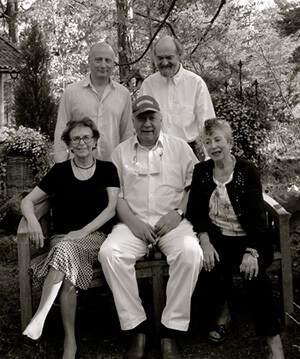| |
| | | | | | | | | | “It was as though I had brought myself freedom” said Pärt, “but at the cost of renouncing everything and being left completely naked. It was like turning the new page in my life. It was a decision, a conviction in something very significant.” | | | | | |
|
| | | | | | It was only after 12 years of censorship, in 1980, that Pärt was able to leave occupied Estonia and set up a new life in Vienna in exile. In the same year Neeme Järvi managed to get his family out and over to the States. None of them were able to return home until after Estonian Independence. | |
|
| | | | | | Today the meaning of the words “home” and “freedom” are more important than ever for Paavo Järvi, who was 18 when he left and 33 when he was able to return for the first time. In 2011 he created the Pärnu Music Festival in the traditional summer resort on the Baltic Sea, where he spent his happiest childhood holidays, and today the family return every July to celebrate and champion Estonian culture. | |
|
| | | | | | “I believe that Estonian culture is best represented through music which naturally expresses our national voice. Our country may be small, but Arvo Pärt’s iconic music is loved worldwide” says Paavo Järvi. “And whilst the world will be celebrating his landmark 90th birthday this year, it is doubly meaningful for us to celebrate here in Pärnu, as Arvo has been a close family friend for as long as I can remember.” | |
|
| | | | | | All the Järvi family pay tribute to Arvo Pärt at this year’s festival. Neeme Järvi leads the Academy Youth Orchestra in the opening concert with Cantus in Memory of Benjamin Britten, followed two days later by Kristjan Järvi and Nordic Pulse in a special programme entitled “Pärt in Mirror”. | |
|
| | | | | | Paavo Järvi conducts the Estonian Festival Orchestra in four concerts featuring La Sindome, Silouette, Swan Song, Tabula Rasa, Für Lennartand Credo, the work that his father premiered under the Soviet regime when he was 5 years old. | |
|
| | | | | | “The Pärnu Music Festival has given us something which we could never have dreamt of when I was a child” says Paavo Järvi. “This is a unique place where music has a special energy and life-long friendships are forged. And in these tense times, returning and celebrating Estonian culture with friends from across the world, feels more important than ever.” |
|


